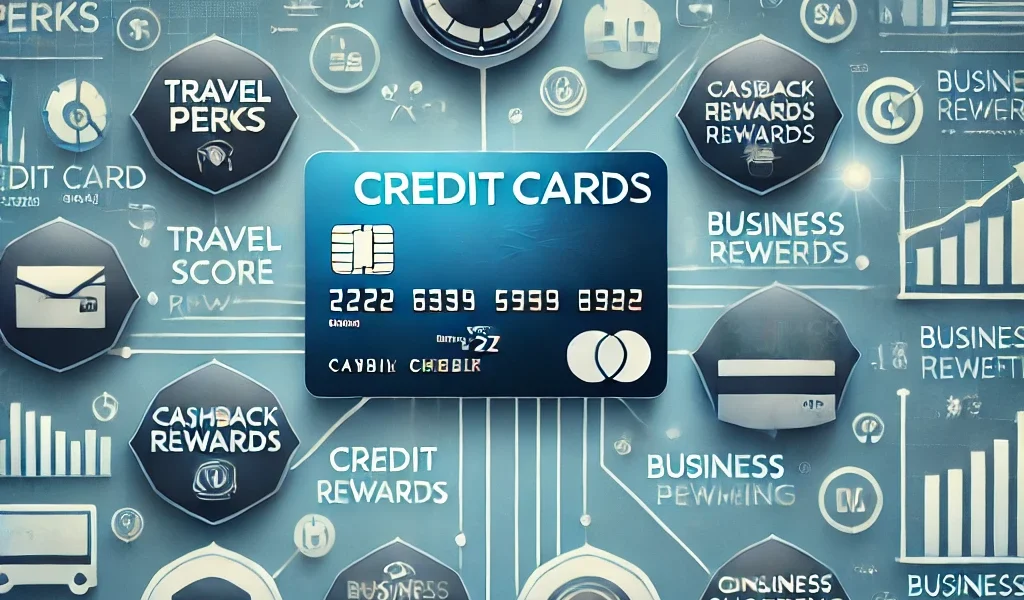Introduction
Credit cards have become an essential financial tool for managing daily expenses, earning rewards, and building credit history. With so many options available, choosing the right credit card can be overwhelming. The best card for you depends on your lifestyle, spending habits, and financial goals. In this article, we will compare different types of credit cards and help you decide which one suits your needs best.
1. Understanding Different Types of Credit Cards
Before choosing a credit card, it’s crucial to understand the various types available:
a) Rewards Credit Cards
- Earn points, cashback, or miles on purchases
- Ideal for frequent shoppers and travelers
- Examples: Cashback cards, airline miles cards, hotel rewards cards
b) Travel Credit Cards
- Designed for travelers with benefits like free lounge access, travel insurance, and foreign transaction fee waivers
- Earn airline miles and hotel rewards
- Examples: Co-branded airline/hotel cards, premium travel cards
c) Cashback Credit Cards
- Provide cashback on specific categories like groceries, fuel, and online shopping
- Best for everyday expenses
- Examples: Flat-rate cashback cards, category-specific cashback cards
d) Low-Interest Credit Cards
- Offer lower APR (Annual Percentage Rate) for purchases and balance transfers
- Useful for those who carry a balance month-to-month
- Examples: 0% introductory APR cards, balance transfer cards
e) Business Credit Cards
- Designed for small business owners and entrepreneurs
- Offer expense tracking, employee cards, and business-related rewards
- Examples: General business rewards cards, airline/hotel business cards
f) Secured Credit Cards
- Require a security deposit as collateral
- Best for individuals with no credit history or poor credit scores
- Helps in building or repairing credit
2. How to Choose the Right Credit Card for Your Lifestyle
a) Identify Your Spending Habits
- Do you spend more on travel, dining, shopping, or fuel?
- Do you prefer cashback over reward points?
b) Consider Fees and Interest Rates
- Look for annual fees, late payment fees, and foreign transaction charges
- Check the interest rates, especially if you plan to carry a balance
c) Check the Rewards and Benefits
- Choose a card that aligns with your spending to maximize rewards
- Compare sign-up bonuses and additional perks
d) Assess Credit Score Requirements
- Premium cards require higher credit scores
- If you’re new to credit, start with secured or entry-level cards
3. Comparison of Popular Credit Cards by Lifestyle
a) Best for Travelers
- Example Card: Chase Sapphire Preferred
- Benefits: Earn points on travel and dining, travel insurance, no foreign transaction fees
- Who Should Get It? Frequent travelers who book flights and hotels often
b) Best for Cashback Rewards
- Example Card: Citi Double Cash Card
- Benefits: 2% cashback on all purchases
- Who Should Get It? Everyday spenders who want simple cashback rewards
c) Best for Online Shoppers
- Example Card: Amazon Prime Rewards Visa
- Benefits: 5% cashback on Amazon purchases, special financing options
- Who Should Get It? Regular Amazon shoppers who want maximum rewards
d) Best for Business Owners
- Example Card: American Express Business Gold Card
- Benefits: Bonus rewards on business expenses, flexible spending limits
- Who Should Get It? Entrepreneurs looking to manage business expenses
e) Best for Students or First-Time Users
- Example Card: Discover it Secured Card
- Benefits: No annual fee, cashback rewards, reports to credit bureaus
- Who Should Get It? Students and first-time credit card users
4. Tips for Using Credit Cards Wisely
a) Pay Your Balance in Full
- Avoid interest charges by paying the full balance each month
b) Keep Your Credit Utilization Low
- Maintain a credit utilization ratio below 30% for a good credit score
c) Take Advantage of Rewards
- Use your card strategically to earn maximum cashback or points
d) Avoid Unnecessary Fees
- Be mindful of late fees, foreign transaction fees, and cash advances
e) Monitor Your Transactions Regularly
- Check statements for fraudulent charges and report any discrepancies
5. Conclusion
Choosing the right credit card depends on your lifestyle and financial goals. Whether you’re a frequent traveler, an online shopper, or a business owner, there is a credit card designed to suit your needs. Compare benefits, fees, and rewards before making a decision to ensure you get the most out of your card.
Disclaimer:
This article is for informational purposes only and does not constitute financial advice. Please consult a certified financial professional before applying for any credit card.




